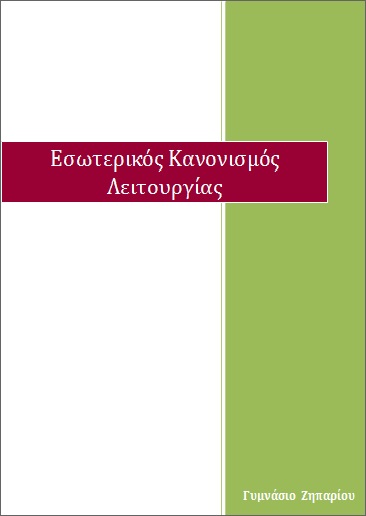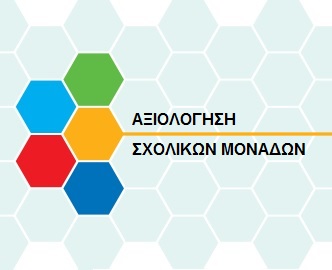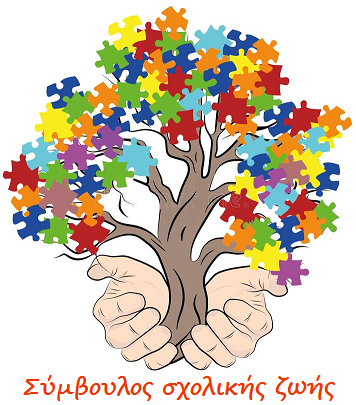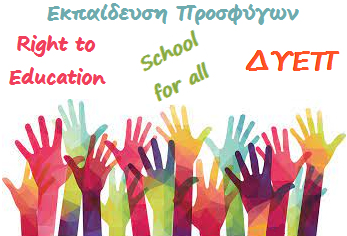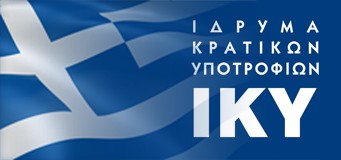Γυμνάσιο Ζηπαρίου
ο ιστότοπος του σχολείου μας...




 ICT integration in Special Needs Education
ICT integration in Special Needs Education
| Erasmus+ 2020-1-NO01-KA201-076430 |
• Συντονιστής (Applicant Organization):
Fyllingsdalen videregående skole, Secondary School, Bergen, Norway
• Εταίροι (Partners):
Springbrett for ungdom, Bergen, Norway
ICON Greece NGO, Greece
Gymnasio Gennadiou, Rodos, Greece
Gymnasio Zipariou, Kos, Greece
Agrupamento de Escolas de São João da Talha, Portugal
Instituto de Educação da Universidade de Lisboa, Portugal
CEP La Laguna, Tenerife, Spain
IES EL SOBRADILLO, Secondary School, Tenerife, Spain
Universidad de La Laguna, Tenerife, Spain
• Περίληψη Σχεδίου (Summary):
In the 2018 International Computer and Information Literacy Study by European Union, it is set that digital competence constitutes an essential skill for participating in a technology driven world. This also applies to students with disabilities/special needs.
Learners with disabilities/special needs cannot participate in civic and social life in today's world without handling basic skills in ICT. Yet, schools and other non-formal education organisations do not always support development of digital competences for learners with special needs, both youth and adults.
Educational ministers from Eu member states have identified that all student should develop key competences for lifelong learning. It is important that everyone has the right to quality and inclusive education, training and lifelong learning that develops key competence and basic skills. We see that a basic skill in today's society is to handle the digital tools in everyday life. For students with disabilities/special needs, it can be a challenge to acquire and develop key competences, including basic skills when it comes to everyday tools such as smart technology.
To ensure that also these learners can take part in socio-educational and personal development, participate in civic and social life we need schools who can support key competences for students with disabilities/special needs. We need to promote innovative learning approaches to ensure that learners with disabilities/special needs can be socially included in the modern society.
European countries values equality, social inclusion, diversity and non-discrimination. It's essential to tackle segregation that students in Special Needs Education is given the opportunity to participate in the society and have a civic engagement. Support of students with special educational needs must be improved at school level. The aim of the project is to ensure active citizenship and lifelong learning for students with special needs through the training of basic IT skills. This is to ensure the opportunities for learners with disabilities/special needs to participate in democratic life and be active engaged in social and civic activities.The objective of the InClusion Team (ICTeam) project is to exploit digital learning environments aiming to reinforce the development of ICT competences for learners with special needs/disabilities.
The project aims to create a learning community where Universities, schools, teacher training centre and NGOs exchange good practices of teaching ICT to students and adults with special needs. The participating parties aim to provide training for educators and enhance the availability of good quality learning tools and resources. This will be done under the pedagogical guidance of the University of La Laguna and the Institute of Education of University of Lisbon.
The project takes into account five key propositions for the use of ICTs in education, as identified in United Nations Convention on the Rights of Persons with Disabilities.
The ICTeam project has four objectives:
¤ Short term staff training events during six LTTAs
¤ Pilot studies of educational material and learning scenarios for Special Education at partners
¤ ICTeam Toolkit for educators in formal and non formal education
¤ Website
As a product, a Toolkit for ICT in Special Education will be developed to support teachers. The ICTeam Toolkit include the following modules:
¤ ICT and SEN
¤ Assistive Technologies for SEN
¤ Sosial approach to ICT for SEN
¤ Inclusive ICT for SEN
¤ Training of staff for specialist ICT
The transnational value of the project lays on the fact that special education is organized differently for SEN learners, both students and adults. There are cultural differences and differences between schools and non-formal education actors. It is essential to take into account the needs and wishes of the learners and their parents. Participants will learn and exchange different teaching practices, teaching materials, ways of organizing, collaborative ways and establishing new good suggestions for special education.
The results expected during the project and on its completion is a strengthened capacity of the participating organisations to provide more attractive education programmes for learners with disabilities/special needs; a more modern and committed school environment where one is ready to integrate good ICT practice and methods for Special needs education into daily activities, and a reinforced responsibility to the challenges of democratic values and fundamental rights, social inclusion, non-discrimination and active citizenship.
Learners with disabilities/special needs participate in learning activities that results in basic skills in ICT and thus have an increased opportunity for those of disadvantages.
• Ιστοσελίδα/Website :
• Ημερίδα Διάχυσης (Event), May 2023:
Differentiated teaching and inclusion: applications and tools in the classroom (relative article in school website)
• Δραστηριότητες Μάθησης/Διδασκαλίας/Κατάρτισης (LTTA):
¤ LTTA1 - Lisbon (Portugal), December 2021
Φωτογραφικό υλικό (Photos)
Παρουσιάσεις (Presentations)
Definition of SEN (Ana Sofia Freire)
European and UN Convention on the rights of Persons with Disabilities (Paula Pinto)
Assistive Technology in School Settings (Rui Fernandes)
¤ LTTA2 - Rhodes (Greece), June 2022
Φωτογραφικό υλικό (Photos)
Παρουσιάσεις (Presentations)
Collaboration between school and family
Inclusive ICT for SEN (Lada Melina)
Intercultural Education (Diamantis Thanasis)
SEN in Ancient Greece (Christina Gkolomazou)
SEN in Greece (Matina Markatou)
The attitude of Church towards SEN (Anastasia Moutsika)
¤ LTTA3 - Bergen (Norway), September 2022
Φωτογραφικό υλικό (Photos)
Παρουσιάσεις (Presentations)
Παρουσιάσεις των Σχολείων (School Presentations)
El Sobradillo High School, Spain
Gymnasio Gennadiou, Greece
Gymnasio Zipariou, Greece
Icon Greece, Greece
Icon Greek Schools, Greece
AE São João da Talha, Portugal
Springbrett, Norway
¤ LTTA4 - Tenerife (Spain), December 2022
Φωτογραφικό υλικό (Photos)
Παρουσιάσεις (Presentations)
The situation of attention to Special Educational Needs in Europe and the use of ICT (Universidad La Laguna)
¤ LTTA5 - Kos (Greece), June 2023
Φωτογραφικό υλικό (Photos)
Παρουσιάσεις (Presentations)
ChatGPT for Students with Special Needs (ICON)
Exploring Quizlet as an Educational Tool (ICON)
Work with ICT for SEN Teaching examples in the classroom of religious education (ICON)
ICT in the classroom of religious education (ICON)
Inclusive school towards the elimination of racial discriminations (Gymnasio Gennadiou)
Special Needs and Inclusive Education Course (Gymnasio Gennadiou)
Strengthening empathy (Gymnasio Gennadiou)
Differentiation and Inclusion – Part 1 (Gymnasio Zipariou, Stella Koumi)
Differentiation and Inclusion – Part 2 (Gymnasio Zipariou, Maria Diakogiorgi)
Inclusion and Differentiation Learning – RCRE (Gymnasio Zipariou − RCRE, Maria Papavasileiou)

| Erasmus+ 2019-1-EL 01-KA201-062883 |
• Συντονιστής (Applicant Organisation):
Directorate of Secondary Dodecanese, Public educational authority, Rodos, Greece
• Εταίροι (Partners):
University of the Aegean, LTEE, Rodos, Greece
CEP La Laguna, training centre, Public educational authority, Tenerife, Spain
Secondary School of Gennadi, Rodos, Greece
Secondary School of Zipari, Kos, Greece
2nd Upper secondary School of Rodos, Greece
IES EL SOBRADILLO, Secondary School, Tenerife, Spain
Agrupamento de Escolas de São João da Talha, Secondary School, Lisbon, Portugal
Fyllingsdalen videregående skole, Secondary School, Bergen, Norway
• Περίληψη Σχεδίου (Summary):
The project “Computational Thinking at School” aims to introduce computational thinking and its implications in pedagogies in the educational field. The high impact of Computer Science in science, economy and society has increased the dialogue about the role of Computational Thinking in education. Computer Science is currently considered the fourth great scientific domain along with the traditional Physical, Life and Social Sciences (Rosenbloom, 2004). Wing in 2006 recognized Computational Thinking as a fundamental competency that all literate citizens should develop through compulsory education, to complement the three other core skills, that is, reading, writing and mathematics.
The integration of Computer Science and Computational Thinking in general education is an imperative issue that should attract the interest of the education community and educational policy makers. The project addresses the application of Computer Science to other school subjects through training of teachers. The role of teachers is crucial in understanding of Computational Thinking as this is depicted in learning activities they design.
The project has four aims: A) an online training course for teachers at partner schools on the scope and conceptualization of Computational Thinking at classroom level B) production of learning scenarios related computational thinking. Evaluation of scenarios and their impact on learners. Selection of best practices C) digital guide D) website
The project is initiated by Directorate of Secondary Education in the Dodecanese, public authority for education at regional level. Laboratory of Learning Technology and Educational Engineering (LTEE) from the University of Aegean will design and implement the pedagogical part of the project. There are six public Secondary schools that will join the training course and will pilot learning scenarios in their classes: three schools from different islands in Greece (Rodos and Kos), one school from Tenerife island in Spain, a school from Lisbon in Portugal and a school from Bergen in Norway. The partner schools have prior cooperation in other Erasmus projects and have focused on Computational literacy and Computer Enhanced Learning among their scope of interest.
It is expected that through the three year project about 80 teachers (15 per school) will be trained and actively involved.
The project will organize short term staff training events in each partner organization. The aim of the events is to study the ten basic dimensions of Computational Thinking and to produce learning scenarios for all dimensions.
• Ιστολόγιο/Blog:
Computational Thinking at School
• Wedsite by LTEE:
Computational Thinking at School
• eTwinning Groups:
Computational Thinking at School
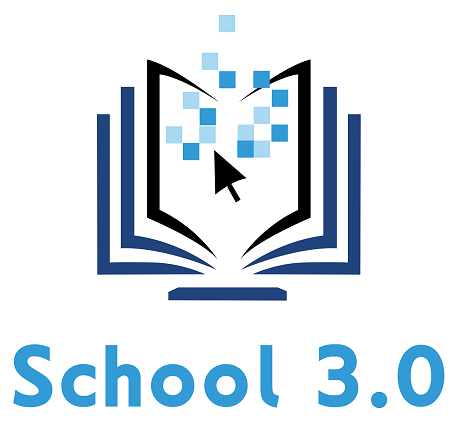
| Erasmus+ 2019-1-EL 01-KA229-062930 |
• Συντονιστής (Coordinator):
Γυμνάσιο Ζηπαρίου, Κως, Greece
• Εταίροι (Partners):
Istituto Istruzione Superiore «Augusto Righi», Italy
Zespol Szkol Ksztalcenia Ustawicznego w Krosnie, Poland
Haydar Akin Mesleki Teknik Anadolu Lisesi, Turkey
Colegiul National «VASILE GOLDIS» ARAD, Romania
• Περίληψη σχεδίου (Summary):
It was observed by all our partners during education and training that rapidly growing robotic applications in education attracted the interest and attention of the students and helped them to participate classes more effectively and more enthusiastically. Preparing today’s students requires educational systems to provide a core body of knowledge as well as a set of skills needed. At the same time the rapid growth of digital tools available increase the challenges of nowadays. The high exposure of 21st century students in web 2.0 tools, devices, and environments opens a window of new affordances, challenges, opportunities, and skills for learning/teaching and assessment.
The project is expected to have a fundamental and lasting impact on pedagogy and innovation in practice of teachers across Europe, modernizing and making more relevant and motivating many aspects of the teaching activity, through the use of new technology. The project has major potential for enhancing student understanding, reflection and collaborative contributions to the creation of knowledge in school across different subjects. The project also aims to influence students’ (and teachers’) attitudes, particularly their awareness of major issues such as global climate change and the importance of observing and monitoring the natural world, and to improve their knowledge and respect for the environment.
• Ιστολόγιο/Blog:
• eTwinning Groups:
• Ενημερωτικά Δελτία:
• Δραστηριότητες Μάθησης/Διδασκαλίας/Κατάρτισης (LTTA):
¤ LTTA1 - Computatinal thinking (Italy)
Δημοσίευση σε Ιστολόγιο:
Φωτογραφικό υλικό & Video:
Museo Archelogico Magna Grecia-photos
¤ LTTA2 - Use of 3D printer (Turkey)
Δημοσίευση σε Ιστολόγιο:
¤ LTTA3 - Proteus (Poland)
Δημοσίευση σε Ιστολόγιο:
¤ LTTA4 - Robotics (Romania)
Δημοσίευση σε Ιστολόγιο:
¤ LTTA5 - Code (Greece)
Δημοσίευση σε Ιστολόγιο:
Scratch με εκπαιδευτικούς και μαθητές:
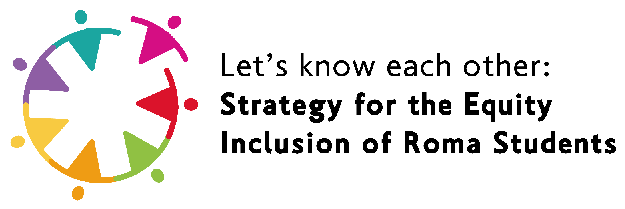
| Erasmus+ 2020-1-EL 01-KA201-078810 |
• Συντονιστής (Applicant Organization):
Gymnasio Zipariou, Kos, Greece
• Εταίροι (Partners):
ICON Greece NGO, Greece
V.E.M. srls, Italy
Istituto Professionale Alberghiero Turistico, Italy
Testvérvárosok Baráti Egyesülete NGO, Hungary
Szolnoki SZC Klapka György Szakgimnáziuma és Szakközépiskolája School, Hungary
Vocational High School of Transport and Transport Management, Bulgaria
Centro Concertado Leonardo da Vinci, Spain
Agrupamento de Escolas de São João da Talha, Portugal
• Περίληψη Σχεδίου ( Summary):
The Europe 2020 strategy envisages reducing the early school leaver rate from 15% to fewer than 10% by 2020. Through the adoption of the Lisbon Strategy in 2000, the EU and its Member States equipped themselves with a framework to address poverty and deprivation. Specific attention was given to child poverty and child well-being, with some EU Member States setting explicit targets within set timeframes. More recently, the EU has proposed an “inclusive growth” strand in the Europe 2020 Strategy. The accent on inclusion provides a further opportunity to adopt a comprehensive EU approach to achieving well-being for children, including the most marginalized such as the Roma.
The link between Early School Leaving and lack of parental engagement is well established through numerous studies and research work (e.g. Tackling Early School leaving from Education and Training in Europe, Euroice, EACEA, 2014). Children from poor families are unlikely to get support from their parents/carers and are at a higher risk of becoming early leavers. In some cases, like Roma community, parents are intimidated by the school system because of their negative educational experiences or because they were educated outside of the local system.
Within this scenario the project raises up from the need to improve the educational level and consequently life condition of the Roma: the project aims to help break down the barriers and attitudes that result in young Roma students dropping out of education and deny better career opportunities and it also enables parents to realise their own potential as advisors, educators and a resource for their children. It offers parents, schools and local authorities a range of possible methods for improving the outcomes for this group, in order to contribute to a stronger, more unified and better articulated inclusion of Roma students in EU education sector.
Two of the powerful tangible results reached by the Consortium during the project’s lifetime will be the tailor made guide about “Roma students’ inclusion: an effective interaction with Roma students and their parents» and the photographic exhibition about Roma traditions (it will take place in all the consortium’s countries).
There will also be three Short-term joint staff training events, one in Bulgaria, one in Hungary, one in Portugal: «Evidence of possible inclusion», «New Roma generations are growing: inequalities, resources», «Roma and school: a difficult relationship».
Running the project, in the end of it, we will be able to:
¤ Establish relationships among European Roma and non Roma populations;
¤ Improve the educational level and consequently life condition of the Roma;
¤ Promote the value of cultural diversity and intercultural dialogue as a tool to fight against social exclusion and marginalisation;
¤ Transmit and raise the consciousness of the Roma families in relation to the importance of education as fundamental tool to achieve a better integration into societies;
¤ Approach regional governments and NGOs to Roma educational issue;
¤ Involve together Roma students and parents, regional and local authorities, stakeholders and NGOs.
• Ιστολόγιο/Blog :
Let’s know each other: Strategy for the Equity Inclusion of Roma Students
• eTwinning Groups :
Let’s know each other: Strategy for the Equity Inclusion of Roma Students






